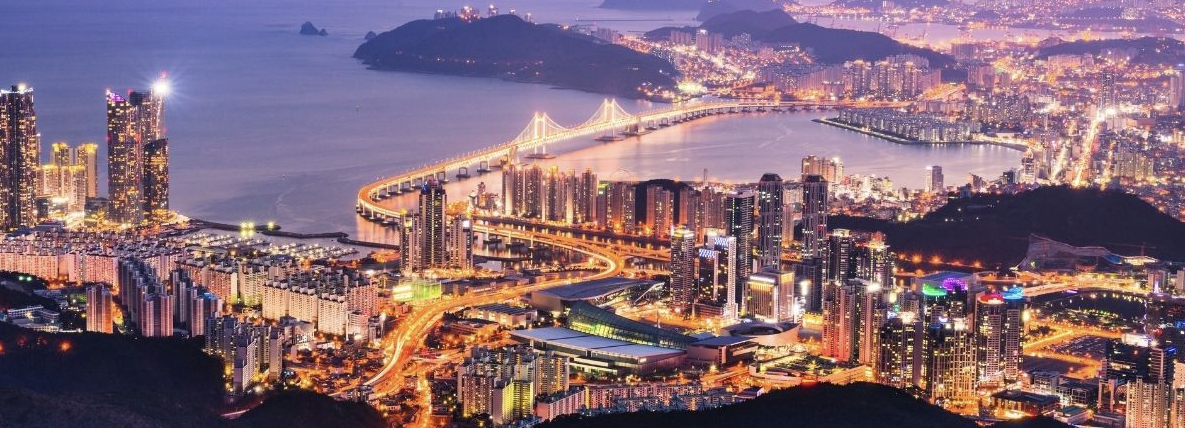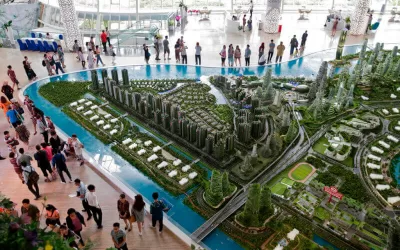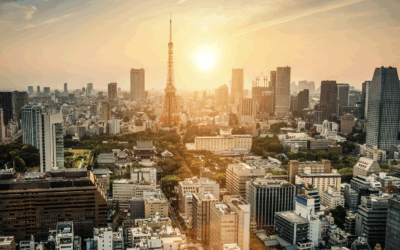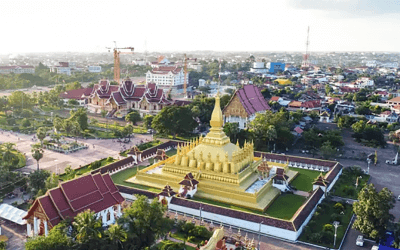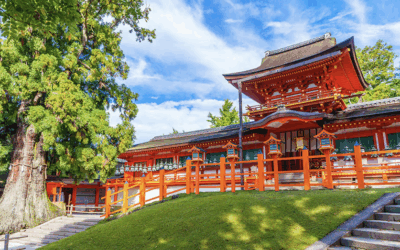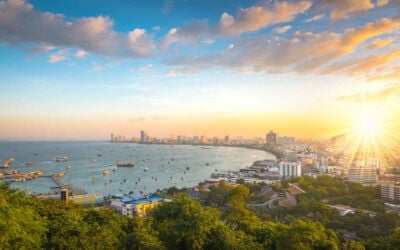As Korea’s vibrant second city, Busan attracting foreign property buyers from around the world with its busy ports and growing economy.
The fact that foreigners are able to own freehold property in South Korea, including land and houses, certainly make things easier than most other countries in Asia.
If you’re thinking about investing in Busan’s real estate market, our guide will help you navigate the process, explore the best neighborhoods, and make an informed decision.
Understanding Busan’s Real Estate Market
Busan’s property market is known for its stability and potential for steady growth.
Although prices in Busan are generally lower compared to Seoul, the city still offers a wide range of options to cater to different budgets and preferences.
According to data from Kookmin Bank, the average price per square meter in Busan is around $9,000. This means you could buy property in Busan for a price similar to what you’d find in a city like Bangkok.
However, the cost of real estate in Busan will vary based on location and type of property. For instance, a 2-bedroom condo in the upscale Haeundae district will likely cost above $1 million, while a property in Nam-gu might be priced closer to $500,000.
Busan’s property market is supported by its growing popularity as a tourist destination and business hub. Generally, you can achieve higher returns in developing neighborhoods on the outskirts of Busan compared to Seoul’s city core.
Top Neighborhoods in Busan
Busan is home to many different areas that cater to different investment goals. Here are some of the top locations to consider:
Haeundae
Haeundae is a popular beachside neighborhood known for its upscale hotels and lively atmosphere.
You’ll find stunning ocean views, vibrant nightlife, and numerous entertainment options here. With that said, the area can get crowded with tourists and has higher living costs than elsewhere in Busan.
Gwangalli
Gwangalli is another coastal neighborhood in Busan famous for its scenic Gwangalli Beach, trendy cafes, and the iconic Gwangandaegyo Bridge.
The positive aspects of Gwanggalli include its lively beachfront atmosphere along with a wide variety of dining and entertainment choices.
However, it can get crowded during weekends and holidays and loud noise from nightlife activities.
Nampo-dong
Nampo-dong is a bustling commercial district featuring numerous shops, street markets, and cultural attractions.
The neighborhood’s strengths include a plethora of shopping options and housing cultural landmarks like Jagalchi Fish Market and BIFF Square.
However, like any central district in Busan, Nampo-dong can be crowded and noisy. Prices are also higher than average here.
You’ll find limited green spaces and the area suffers from traffic congestion during peak hours.
Seomyeon
Seomyeon is a central neighborhood of Busan known as a major commercial and transport hub with various shopping centers and restaurants.
The good parts of this location include excellent shopping facilities, vibrant nightlife, and convenient public transportation.
However, Seomyeon can be crowded and hectic, with limited historical sites and green areas.
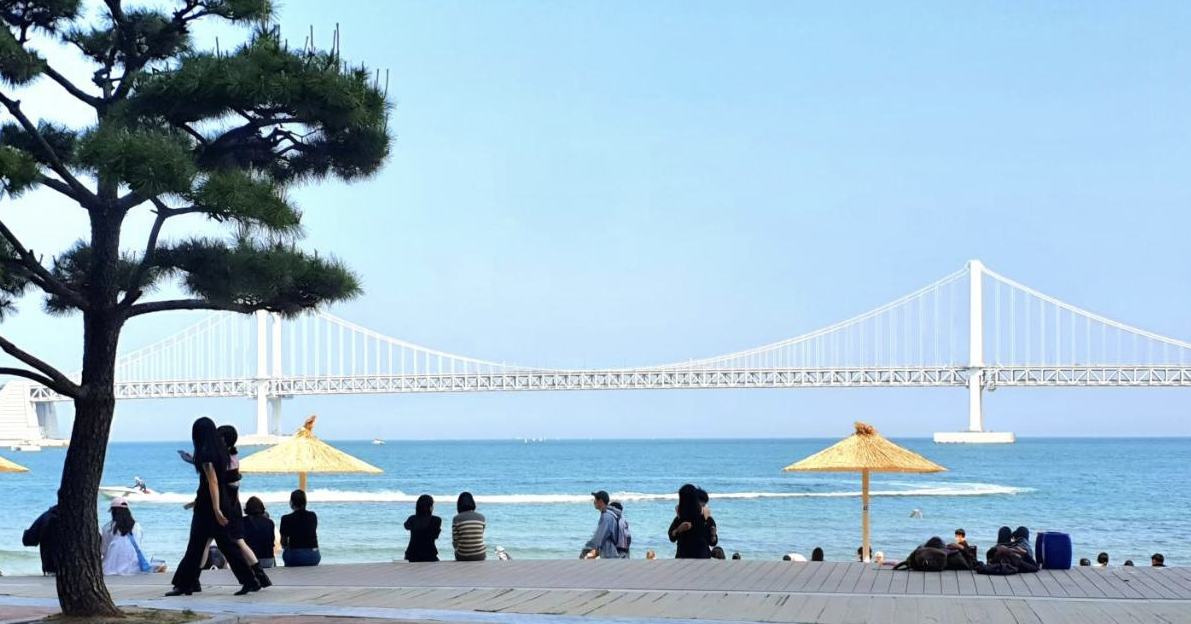
Gwangalli Beach always draws out a crowd, especially on the weekends.
Dongnae
Dongnae is a peaceful area renowned for its hot springs, historic temples, and serene ambiance.
Residents can enjoy hot springs, beautiful temples, and a quiet and peaceful environment.
However, Dongnae does have few entertainment options and limited public transport in some parts.
The Property Buying Process in Busan
Buying property in Busan involves several key steps, from researching the market to finalizing the transaction. Here’s a simplified overview of the process:
- Research Busan’s property market and set a budget.
- Visit properties and choose one that meets your requirements.
- Negotiate the price and terms with the seller.
- Register the property at the local district office using a ‘Juminhyo’ (Residency Certificate).
- Finalize the transaction at a notary office with a ‘Juminseonggwan’ (Certificate of Residence).
- Transfer funds through a designated Korean bank account for international buyers.
- Receive the property ownership certificate known as ‘Jibeonjeungdo’.
It’s crucial to understand that the process can be complex, especially for foreign buyers.
Working with a reputable real estate agent and a lawyer is highly recommended to ensure a smooth transaction.
If you’re a citizen of South Korea, check the specific regulations in your distict for foreign property ownership.
Busan’s Lifestyle and Cost of Living
Living in Korea is an exciting and vibrant experience, with plenty of culture, entertainment, and beautiful scenery to explore.
Expats appreciate the friendly locals, abundance of attractions, and lower cost of living compared to Seoul.
You can expect to pay between $800 and $1,500 per month for a modern apartment in the trendy Haeundae district, and $50-70 for a monthly public transportation pass.
A meal at a local Korean restaurant typically costs $5-10, while a movie ticket is around $10-15.
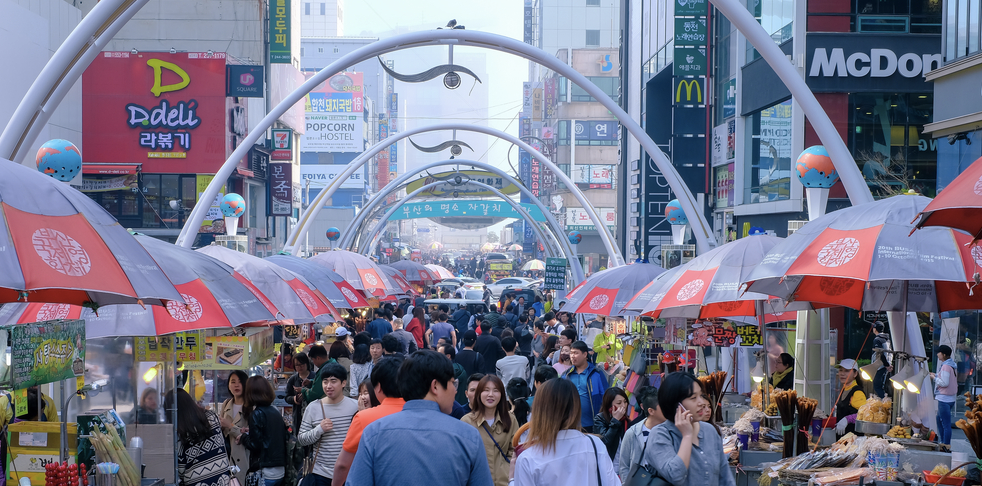
Nampodong is a must-visit neighborhood, especially if you’re a foodie. The area is packed with lively street stalls and diverse choices for restaurants.
Access to healthcare in Busan is generally good, with a variety of public and private facilities available.
The city’s extensive subway and bus network makes getting around convenient, even if you don’t own a car.
Renting Out Your Home in Busan
If you’re buying property in Busan as an investment, renting it out can provide a steady income stream.
The city has a strong rental market, with demand from various tenant types, including young professionals, expats, students, and tourists.
Rental yields in Busan are currently quite low, typically below 2%.
With that said, the highest yields in Busan tend to be in areas close to the city center, such as Seomyeon, Sasang, Nampo, and Haeundae, due to their proximity to amenities and high rental demand.
Properties near universities also tend to have higher yields due to the demand for student housing.
For short-term rentals (e.g., Airbnb), popular areas include Haeundae, Gwangalli Beach, and Seomyeon. Busan has around 7,000 active Airbnb listings, with an average daily rate of about $90 and an occupancy rate of 60%.
This presents an opportunity to generate additional income when compared to long-term rentals, especially during peak tourist seasons.
Is Buying Busan Property Worth It?
The feasibility of any investment, whether it’s real estate or otherwise, will depend on your personal goals.
Do you want yields or appreciation? Are you seeking an expensive house, or is there a strict budget?
Here are several factors to think about when it comes to purchasing a home in Busan as an investment.
Pros:
- Busan offers high quality of life with its rich culture, delicious cuisine, and friendly locals. Buying property allows you to secure a piece of this attractive lifestyle.
- The cost of living in Busan is lower than in Seoul, making it an appealing choice for those seeking an urban experience without the capital’s price tag.
- Busan’s growing popularity as a tourist destination and business hub supports a stable property market with potential for steady appreciation over the long term.
- South Korea is one of few countries in Asia which will let you become a citizen if you’re a long-term resident, and they allow dual nationality.
Cons:
- Rental yields in Busan are quite low (below 2%), which may not justify the investment for those primarily seeking rental income.
- Foreign ownership restrictions in certain areas and the complex buying process can pose challenges for international investors.
- If you’re set on living in Busan proper, you must go through normal channels to get residency in Korea. You can’t get an investment visa through buying property here.
- Transaction costs, including taxes and fees, can be significant, making it less appealing for short-term buyers.
- Geopolitical risk that comes with neighboring North Korea is also worth noting. If a second Korean war does break out, real estate prices would steeply decline.
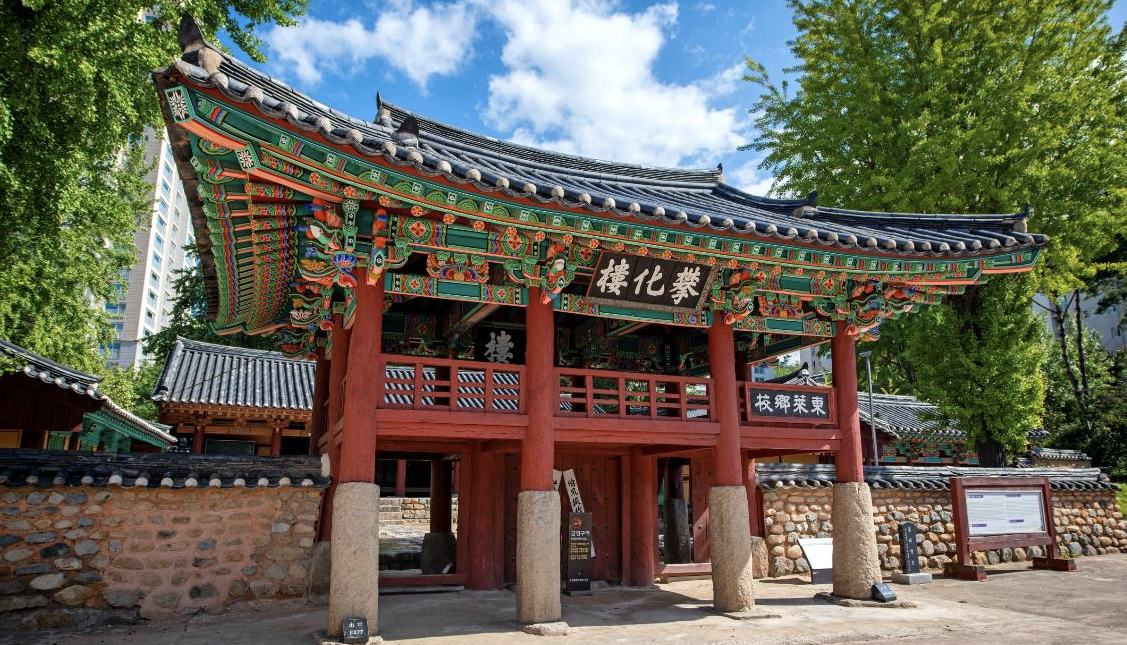
The Dongnae Hyanggyo is one of the historical landmarks in Busan. The city played an important role in South Korea’s ancient empire by being the diplomacy and commercial gateway to foreign countries.
Ultimately, Busan is an attractive destination for those seeking a high quality of life and the potential for steady property appreciation.
However, buying an apartment or house in Busan may not be the best choice for investors primarily focused on rental yields or short-term gains.
It’s important to keep in mind that, like any housing market, Busan comes with its own set of risks and challenges.
These include foreign ownership restrictions, low rental yields, and the potential for market fluctuations. As such, it’s essential to approach property buying with a clear strategy, realistic expectations, and a long-term perspective.
When considering investing in Busan, it’s also crucial to compare it with other potential markets, both within South Korea and beyond.
Nearby countries in Asia also benefit from the same positive factors as Korea, like stable currencies and freehold foreign land ownership.
Singapore and Taiwan, for example, are also developed international tech hubs that allow foreign homeownership.
With all else being equal, you may want to consider the property market with the best prospects for growth and appreciation.
Nonetheless, for those drawn to the allure of a coastal metropolis with a rich cultural tapestry and a growing global profile, property in Busan presents an opportunity.
FAQs: Real Estate in Busan
How Much Does Property in Busan Cost?
The average price per square meter for property in Busan is around $9,000, making it more affordable than Seoul but still relatively expensive from a global perspective. Prices vary significantly based on location and property type.
For example, a 2-bedroom condo in the upscale Haeundae district may cost over $1 million, while a similar property in the less central Nam-gu area could be closer to $500,000.
Overall, Busan offers a range of options to suit different budgets. While it's not as cheap as some other Asian cities like Bangkok, it provides a high quality of life and the potential for steady price appreciation over the long term.
What's the Most Expensive Area in Busan?
Haeundae is generally considered the most expensive neighborhood in Busan. Known for its stunning beachfront, luxury hotels, and vibrant atmosphere, Haeundae commands premium prices. The area is popular with both domestic and international buyers seeking a high-end lifestyle.
Other pricey districts include Gwangalli, another coastal neighborhood famous for its trendy cafes and scenic bridge, and Seomyeon, a central commercial and transport hub with excellent shopping and nightlife.
Can Foreigners Own a House in Busan?
Yes, foreigners can legally own freehold property in Busan and throughout South Korea. However, there are certain restrictions and a complex buying process to navigate. It's highly recommended to work with a reputable real estate agent and lawyer to ensure a smooth transaction.
One key step is registering the property at the local district office using a Residency Certificate (Juminhyo). Buyers must also obtain a Certificate of Residence (Juminseonggwan) from a notary office and transfer funds through a designated Korean bank account. Understanding and adhering to these requirements is crucial for foreign buyers.
How Much Are Rental Yields in Busan?
Rental yields in Busan are currently quite low, typically below 2%. This means that investing in Busan property primarily for rental income may not be the most lucrative strategy. The highest yields tend to be found in central areas like Seomyeon, Sasang, Nampo, and Haeundae due to high demand and proximity to amenities.
For short-term rentals like Airbnb, popular tourist areas such as Haeundae, Gwangalli Beach, and Seomyeon can generate higher returns, especially during peak seasons.

